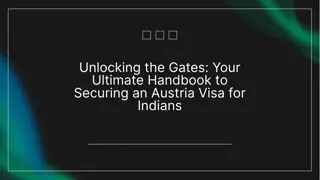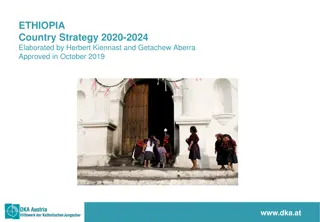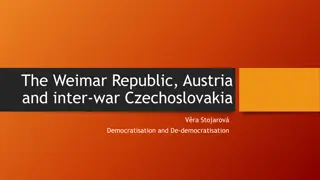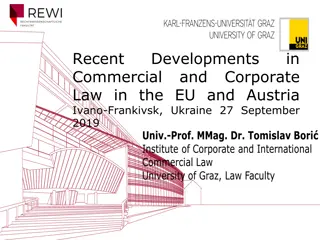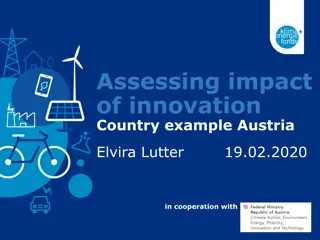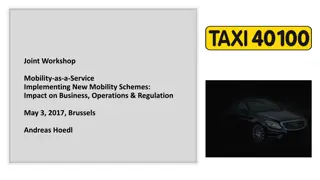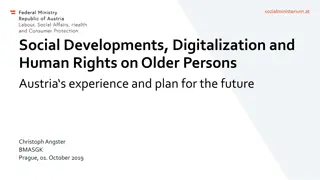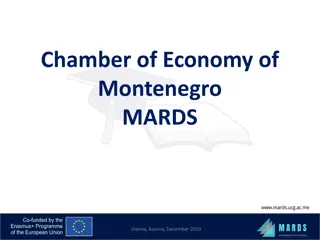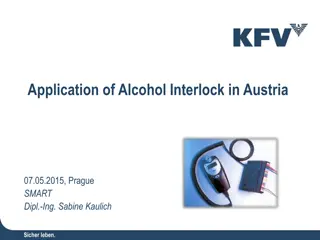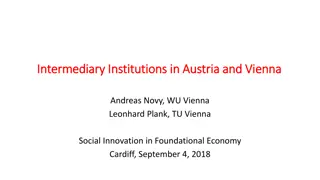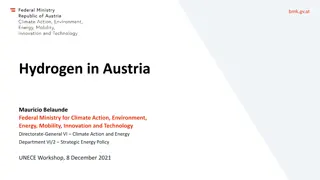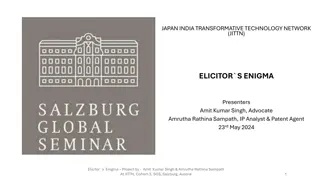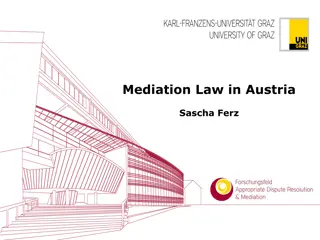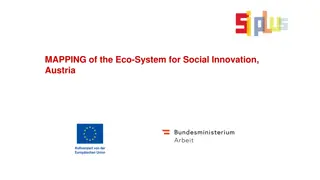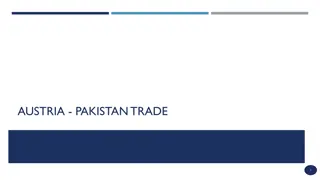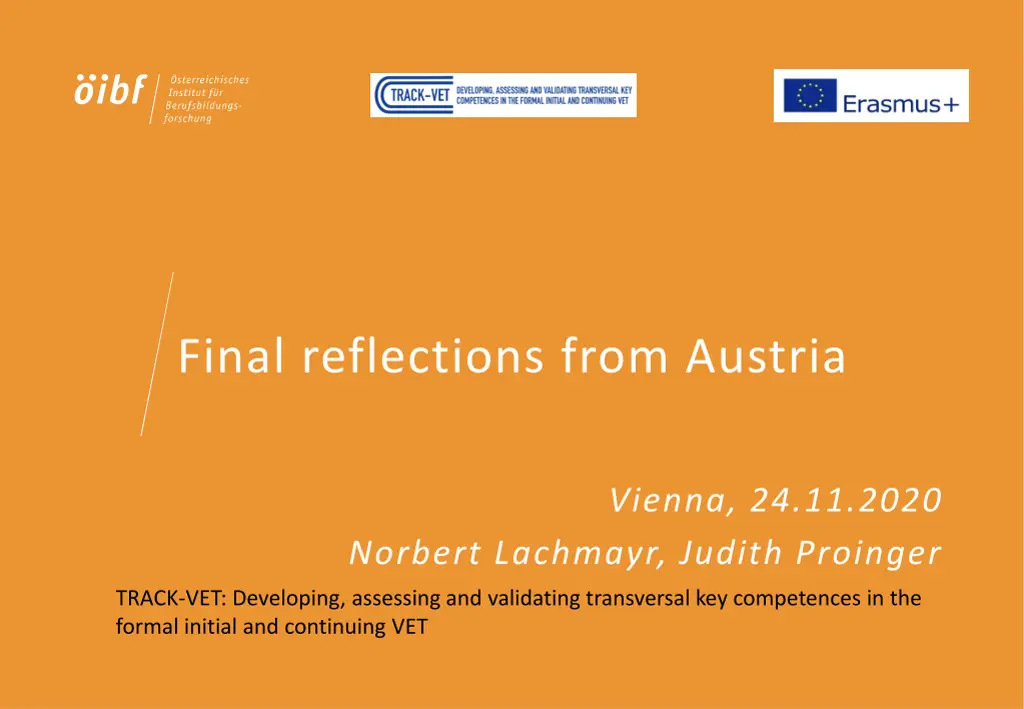
Developing Transversal Key Competences in Austrian VET System
Explore the evolution and impact of competence-oriented education in Austria's vocational education and training (VET) system, highlighting key policy measures, implementation strategies, and recommendations for effective transversal competence development.
Download Presentation

Please find below an Image/Link to download the presentation.
The content on the website is provided AS IS for your information and personal use only. It may not be sold, licensed, or shared on other websites without obtaining consent from the author. If you encounter any issues during the download, it is possible that the publisher has removed the file from their server.
You are allowed to download the files provided on this website for personal or commercial use, subject to the condition that they are used lawfully. All files are the property of their respective owners.
The content on the website is provided AS IS for your information and personal use only. It may not be sold, licensed, or shared on other websites without obtaining consent from the author.
E N D
Presentation Transcript
Final reflections from Austria Vienna, 24.11.2020 Norbert Lachmayr, Judith Proinger TRACK-VET: Developing, assessing and validating transversal key competences in the formal initial and continuing VET
Transversal Key Competences in Austria Situation in Austria: Experts of VET-curricula-designing are same persons like the decisionmaker (ministery) To strengthen competence-orientation, a series of key policy measures have been introduced in Austrian VET development of educational standards starting in 2004 revision of curricula of upper secondary level programmes starting in 2008 School Development Concept for Entrepreneurship Schools since 2013 mandatory internships also in the VET school from 2014/2015 competence-based assessment of the diploma project of VET-colleges since 2015 centralised competence-oriented final examination in all schools since 2015/16 new curricula for training of secondary level teachers entered into force in 2016/17 comprehensive pedagogical reform adopted in 2018 to intensify competence- oriented teaching throughout Austria in the overall school system
Recommendations & key findings The implementation of competence-orientation should be understood as a long-term project with a step-by-step implementation with a coordinating structure with stakeholders (steering group). The incorporation of key competences in teaching and training plans lead to new ways of learning and teaching which is supported by a new teacher education and learning coaches. Additional support (such as newsletters, workshops, information on the Ministry's website) further raises awareness of TKC. But - not too extensive for all TKC areas at the same time (overstimulation and defensive attitude).
Recommendations & key findings Educational standards are a good model, also because of the lesson examples for the development of competence. But to take into consideration: coordinated and harmonized approach across all types of schools to be set up in the beginning, as well as with a scientific review. basic "instructions", tools or agreements are needed to translate the individual subject-specific elements of different school types and schools according to common "game rules" as well as the intensive maintenance of lesson examples decentrally to support. Use of a uniform assessment grid: easy handling, automatic result calculation, identical use for as many types of schools as possible, avoidance of gender-based biases in the assessment criteria Rubrics : diploma-project is assessed by the teachers: professional knowledge, subject-specific problem solving, project management, working technique / language, representing work results
Recommendations & key findings Involvement of relevant actors and ensureance that TKC and their assessment are an integral part of everyday school life. action-oriented, project-oriented and interdisciplinary teaching, participating in competitions, the planning of school activities by the young people themselves, practice companies, the preparation of a diploma thesis and the compulsory internship with documentation on the e-portfolio, Further information Country Report Austria (www.track-vet.eu and www.oeibf.at) Transversal key competences in school-based VET in Austria https://www.bibb.de/en/101010.php Transversale Schl sselkompetenzen in der schulischen Berufsbildung in sterreich. Aktueller Stand und Entwicklungsfelder , in: BWP Berufsbildung in Wissenschaft und Praxis, 4/2019

